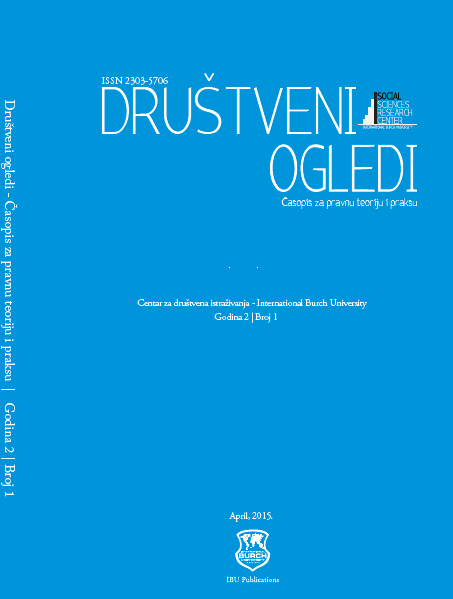Istine o Bosni i Hercegovini; konflikt ili sinergija
Truths about Bosnia and Herzegovina; Conflict or Synergy
Author(s): Ciril RibičičSubject(s): Constitutional Law
Published by: Centar za društvena istraživanja
Keywords: Bosnia and Herzegovina; constitutional amendments; constituent peoples; minorities; the electoral system; Dayton Agreement; the Venice Commission; the High Representative;
Summary/Abstract: The author discusses the importance of the ECtHR ruling in the case Sejdić and Finci in terms of necessary constitutional amendments that will establish Bosnia and Herzegovina as a normal European democratic country, which is independent and capable of integration in the EU. According to the author, BH is facing an inter-personal conflict of interests of constituent peoples which are harming them and the development of the state they reside in. He agrees the greater prominence of the constitutional system of BH should be given civic on the account of the national principle, however, this should not mean neglecting the concern for the equality of the constituent peoples and entities. Since the last war ended, these peoples have been living next to each other far too separately, and several times still against each other. In BH, various truths of the constituent peoples, "the others" and the international community are fronting. So far they have mostly been in conflict with one another rather than cooperating in synergy. The international community is undeniably accredited for terminating war-oriented hatred and maintaining permanent peace in BH. However, the "imposed" Dayton constitutional system has become the reason for inhibiting the development of BH. For that reason, the international community should transform its influence in such manner that it still stays the peace guarantor, but at the same time not jeopardize the BH independence to such an extent that it continues to represent the insurmountable obstacle to enter the EU. Strengthening the position and influence of "the others", i.e. those who are not the members of the constituent peoples, and considering their truths about BH, may bring fresh solutions in current problems and in searching for the new constitutional solutions. Therefore, the realization of the ECtHR ruling in the case Sejdić and Finci represents a small, yet constructive step in the right direction.
Journal: Društveni ogledi
- Issue Year: 2/2015
- Issue No: 1
- Page Range: 9-33
- Page Count: 25
- Language: English

